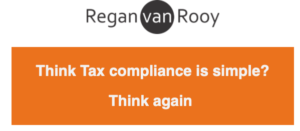South Africa: Tax Clearance Certificates Issued By The South African Revenue Service
Article by Beric Croome of ENSAfrica
The Tax Administration Act 28 of 2011 (“the TAA”) which took effect on 1 October 2012 contained provisions regulating the issue of tax clearance certificates by the South African Revenue Service (‘SARS’). Section 256 of the TAA was substituted in its entirety as a result of section 64 of the Tax Administration Laws Amendment Act 44 of 2014 (“TALAA”). The new provisions governing the issue of tax clearance certificates took effect on date of promulgation of the TALAA, namely, 20 January 2015. The ‘Memorandum on the Objects of the Tax Administration Laws Amendment Bill of 2014’ indicated that a new tax clearance system has been introduced by SARS to enhance the functionality by SARS in issuing tax clearance certificates for purposes of applying for government tenders for both taxpayers and those entities that are awarding tenders. Under section 256 of the TAA, taxpayers are entitled to request confirmation of tax compliance status regarding tenders, good standing, utilisation of the foreign investment allowance or those persons wishing to emigrate.
A taxpayer seeking a tax clearance certificate is required to apply in the prescribed form and manner to SARS and SARS is then required to issue confirmation of that taxpayer’s compliance status within 21 business days from the date the application is submitted, or such longer period as may reasonably be required if a senior SARS official is satisfied that the issue of the tax clearance certificate may prejudice the efficient and effective collection of taxes.
SARS may only provide confirmation of the taxpayer’s tax compliance status as compliant where that taxpayer is registered for tax and does not have any outstanding tax debt due to SARS, excluding an amount which is in dispute and which has been suspended under section 164, or where the taxpayer has concluded an instalment payment agreement with SARS under section 167 of the TAA or the taxpayer has compromised the tax debt with SARS under section 204.
Furthermore, SARS may not issue confirmation that the taxpayer is compliant where the taxpayer has any return outstanding to SARS, unless the taxpayer has made an arrangement with SARS regarding the submission of that return.
Previously, section 256 required that there were no outstanding requests for information and that has been removed as a requirement for confirmation of the taxpayer’s tax compliance status, but that amendment will be reviewed during the 2015 legislative cycle.
Once SARS is satisfied that the taxpayer is compliant, it must issue confirmation of the taxpayer’s compliance status in the prescribed format, and include the original date of issue of the tax compliance status confirmation, as well as the taxpayer’s tax reference number and other identifying details.
Generally, SARS is not entitled to disclose information regarding a taxpayer to any other person, in light of the confidentiality provisions contained in Chapter 6 of the TAA. However, section 256 provides that SARS may confirm the taxpayer’s tax compliance status upon request by an organ of state or any other person to whom the taxpayer has presented the tax compliance status confirmation.
Where SARS discovers that it has issued the confirmation of the taxpayer’s compliance status in error, or that the confirmation was obtained on the basis of fraud, misrepresentation or non-disclosure of material facts, SARS may alter the taxpayer’s tax compliance status from compliant to non-compliant, so long as it has given the taxpayer an opportunity to respond to the allegations of at least 14 days prior to the withdrawal of the confirmation of the taxpayer’s compliant status.
The taxpayer will be regarded as non-compliant from the period commencing on the date that the taxpayer no longer complies with the requirements specified in section 156(3) of the TAA, and ending on the date that the taxpayer regularises their non-compliance.
SARS has indicated that it is intended that where a taxpayer’s request for confirmation of tax compliance status is successful, it will issue the taxpayer with a personal identification number (‘PIN’) for their specific request. When the PIN is utilised by any other person, that person will be able to ascertain the compliance status of the taxpayer on a real time basis on the date on which that PIN is utilised. It is intended that the tax compliance status process will allow taxpayers to print a tax clearance certificate in the previous format from the new system during the phasing in period of the new real time tax clearance status system, by utilising the PIN provided by SARS.
Unfortunately, cases have been encountered where taxpayers have applied for tax clearance certificates, only to be declined on the basis that they have an outstanding tax debt, which relates to an amount in dispute for which the taxpayer has applied for postponement under section 164 and to which SARS has not responded. This flows from the fact that applications for suspension of payment are not tracked on the SARS system and too often SARS delays making a decision on whether the taxpayer’s request for suspension is granted or not, and hopefully this deficiency will be rectified in the future.






